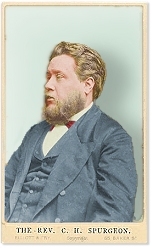EIGHT REASONS WHY A CHRISTIAN SHOULD DO MORE THAN OTHERS:
1. Because more is done FOR him than for others.
2. Because he is more nearly RELATED to God than others.
3. Because he PROFESSES more than others.
4. Because he is inwardly CONFORMED to the Redeemer more than others.
5. Because he is WATCHED more than others.
6. Because if he DOES no more than others - it will appear that he IS no more than others.
7. Because he is appointed to be a JUDGE of others.
8. Because he EXPECTS more than others.
As the disciples of Christ are more than others - so the disciples of Christ do more than others.
Where there is an overabundance of privilege - there should be an overabundance of practice.
To whom much is given - of them much shall be required.
Those should bless most - who are the most blessed.
---From William Secker's Nonsuch Professor


























